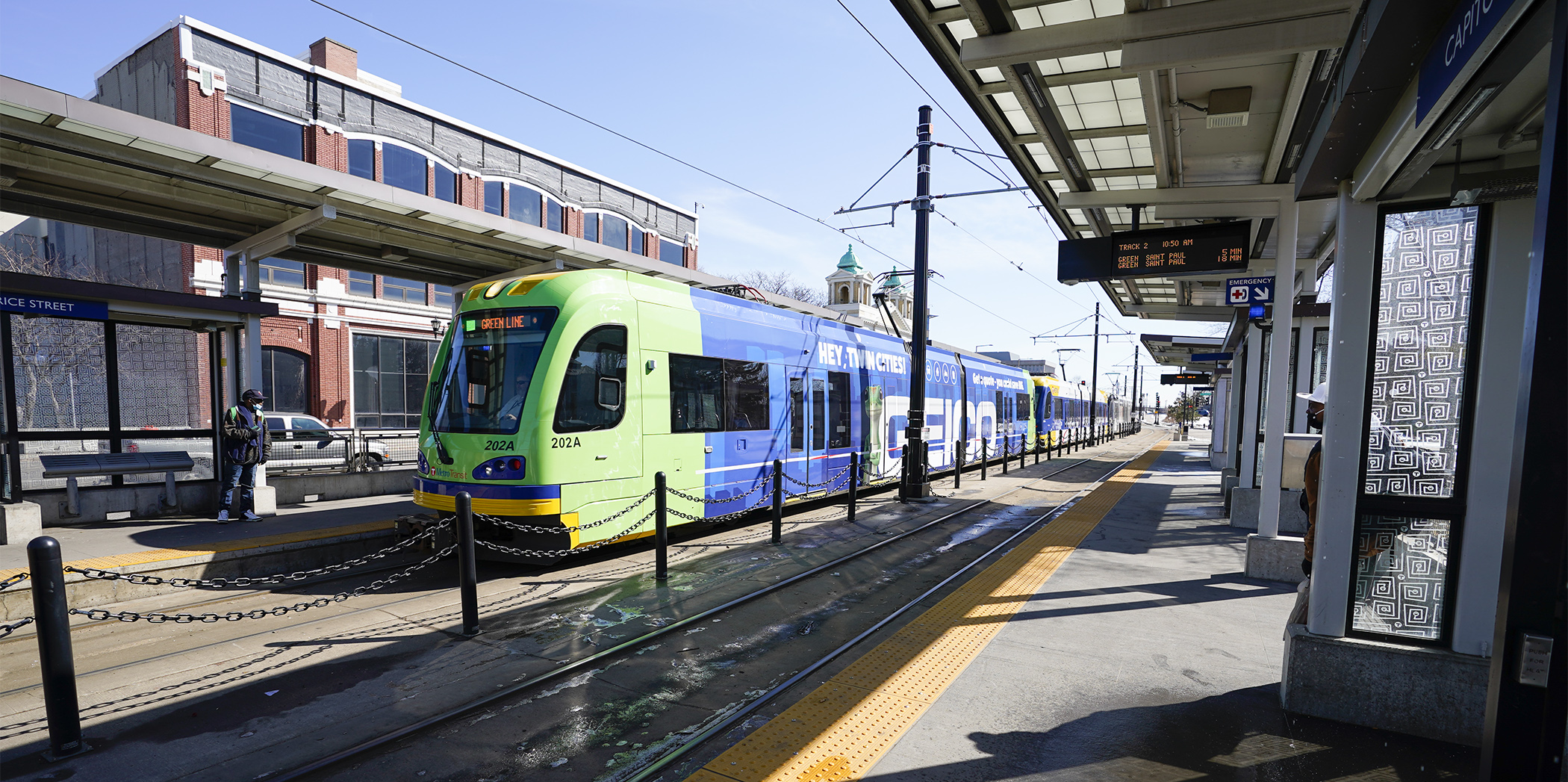Transportation chair says metro sales tax increase could pay for better buses, safer trains

About 13 hours after hearing a proposal to improve the bus riding experience, the House Transportation Finance and Policy Committee heard a possible way to pay for it.
Rep. Frank Hornstein (DFL-Mpls) sponsors HF2346, which through a delete-all amendment would require the Metropolitan Council to impose a 0.75% sales tax on retail purchases in the seven-county metropolitan area and apply the proceeds to building, operating and maintaining transit systems.
The bill was laid over Thursday for possible omnibus bill inclusion.
Transit should have dedicated, long-term, ongoing funding in the same way that roads and bridges do, Hornstein said. While a sales-tax-for-transit proposal has been heard in past years, the current iteration identifies how the money would be used.
Some would be spent annually to improve regular bus routes and shelters, transit safety, bus accessibility, and arterial and highway bus rapid transit routes. Money would also be dedicated to purchasing zero-emission buses and providing funds to micro-transit services, which help people with the first and last mile of a trip.
Hornstein said active transportation, crash reduction and pedestrian safety components could be added.
Quality transit is key to building vibrant communities and essential to combating climate change, said Hennepin County Commissioner Marion Greene. “A metro sales tax means dedicated, stable funding to bring transit systems out of a constant budget crisis.”
Rep. Nolan West (DFL-Blaine) suggested the sales tax only apply to Hennepin and Ramsey counties, where the majority of transit users reside.
Hornstein said the hope is to build out the system in suburban and exurban communities, such as bus rapid transit lines on state Highways 55 or 169. The bill would also invest in micro-transit serving the suburbs.
Noting some people could pay close to 9 cents on every dollar in sales tax, Rep. Shane Hudella (R-Hastings) suggested the transit sales tax be pulled back to a 0.5% and Rochester and Duluth be included.
Southwest Light Rail
The bill would explicitly prevent sales tax money from being used for the Southwest Light Rail project, which is hundreds of millions of dollars over budget and years overdue as outlined in a recent report from the Legislative Auditor’s Office.
However, the bill states it is the intention of the Legislature to repeal that provision with a change in governance for the Metropolitan Council.
Greene, who chairs the Hennepin County Regional Railroad Authority, shares lawmakers’ frustrations over the delays and cost overruns, but said the bill would do the opposite of the legislative auditor’s recommendation that “the Legislature create a framework for light rail projects in which the government entity responsible for managing construction also bears some financial responsibility for construction costs and any cost increases.” Nor would the language do anything to finish the project.
“It does tell people in communities along the corridor that have been waiting for transit that they are a pawn in some game,” she said.
Related Articles
Search Session Daily
Advanced Search OptionsPriority Dailies
Speaker Emerita Melissa Hortman, husband killed in attack
By HPIS Staff House Speaker Emerita Melissa Hortman (DFL-Brooklyn Park) and her husband, Mark, were fatally shot in their home early Saturday morning.
Gov. Tim Walz announced the news dur...
House Speaker Emerita Melissa Hortman (DFL-Brooklyn Park) and her husband, Mark, were fatally shot in their home early Saturday morning.
Gov. Tim Walz announced the news dur...
Lawmakers deliver budget bills to governor's desk in one-day special session
By Mike Cook About that talk of needing all 21 hours left in a legislative day to complete a special session?
House members were more than up to the challenge Monday. Beginning at 10 a.m...
About that talk of needing all 21 hours left in a legislative day to complete a special session?
House members were more than up to the challenge Monday. Beginning at 10 a.m...